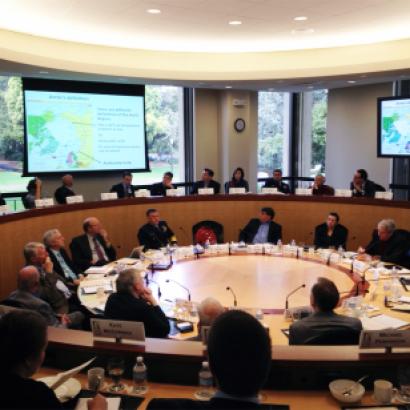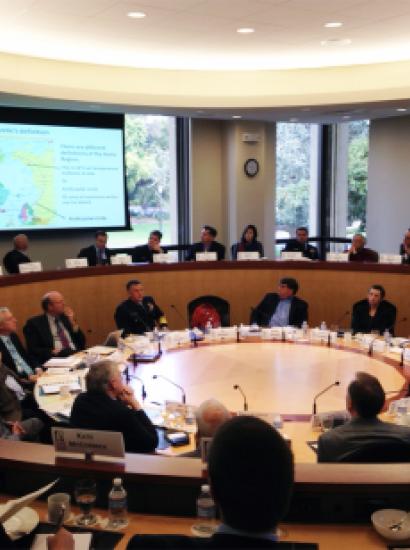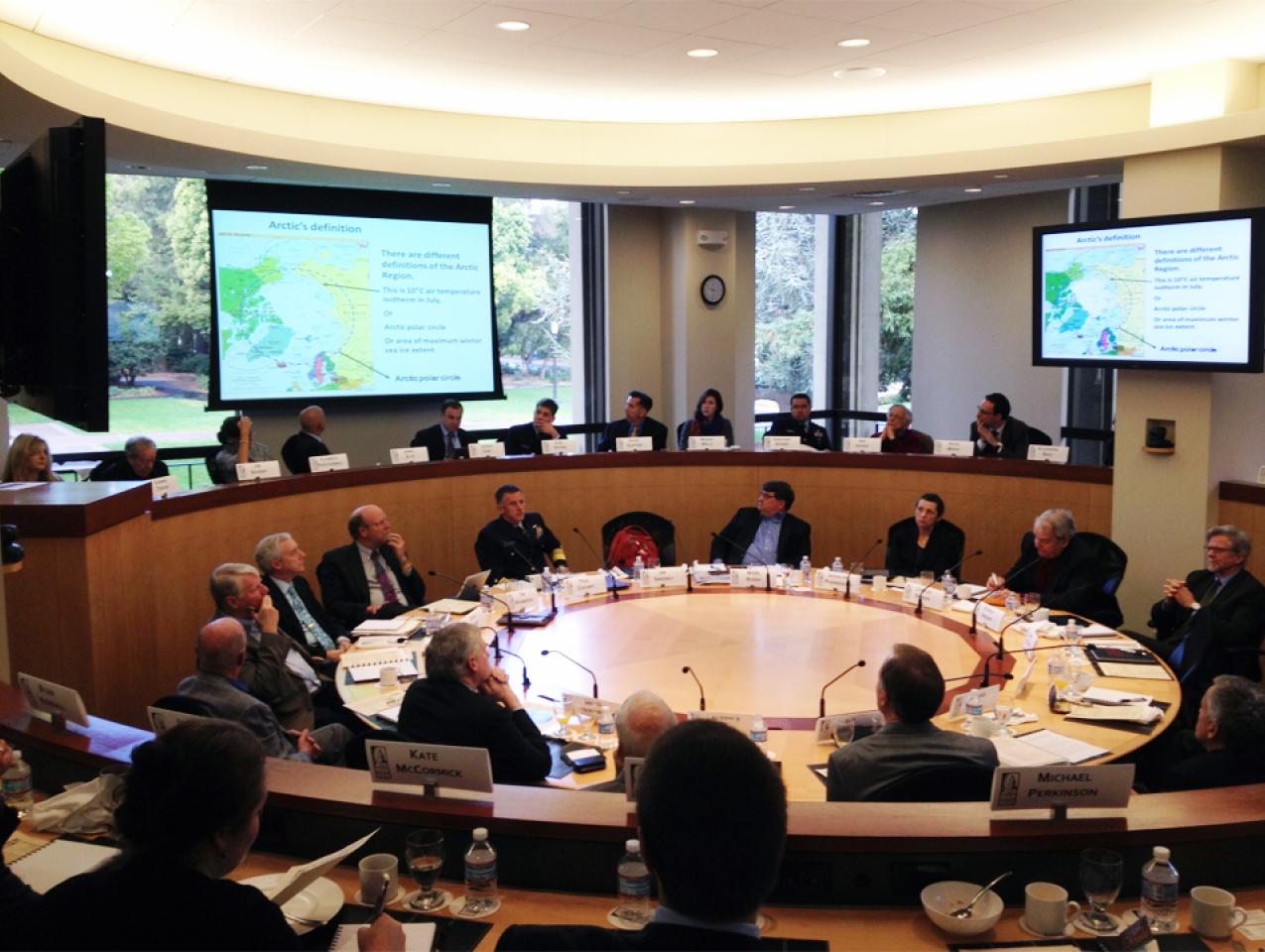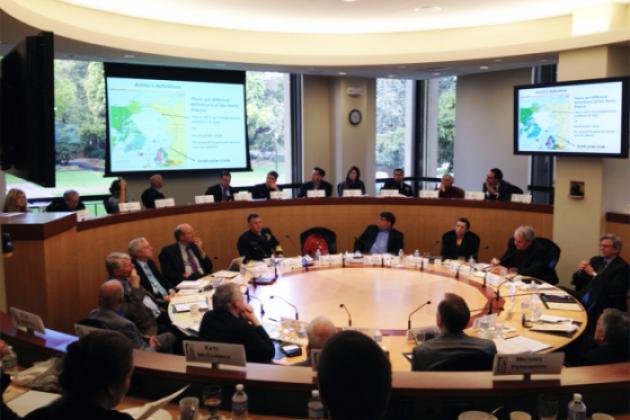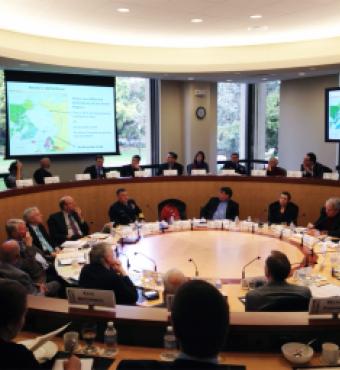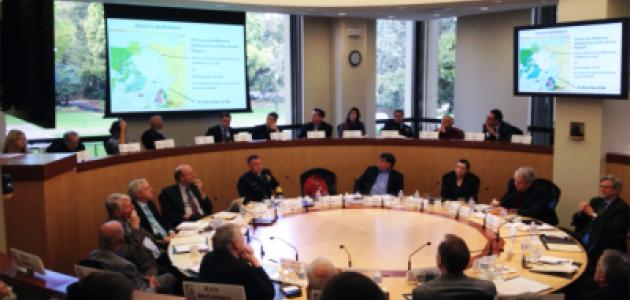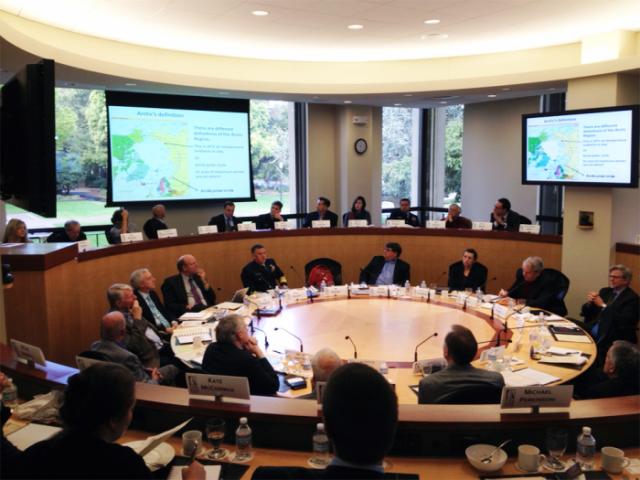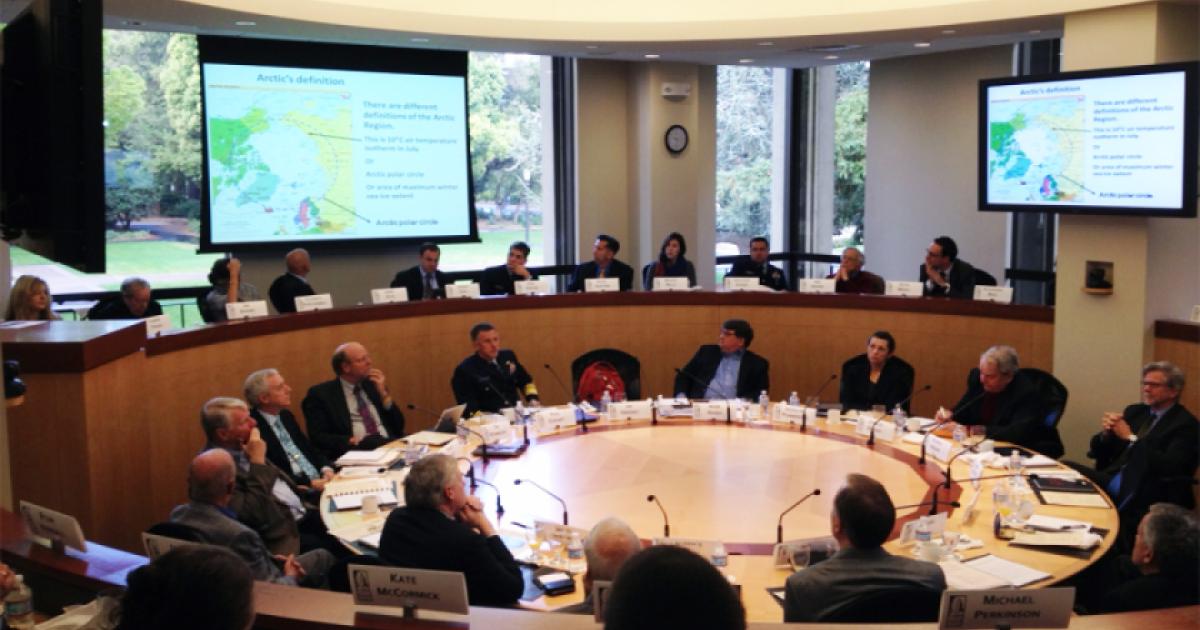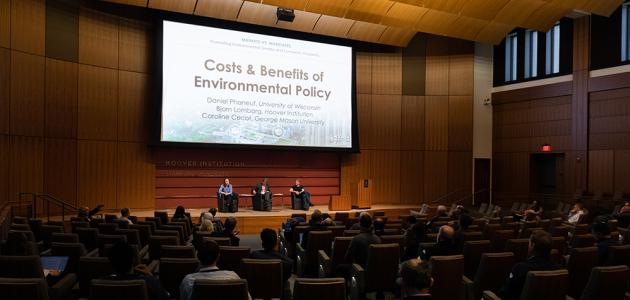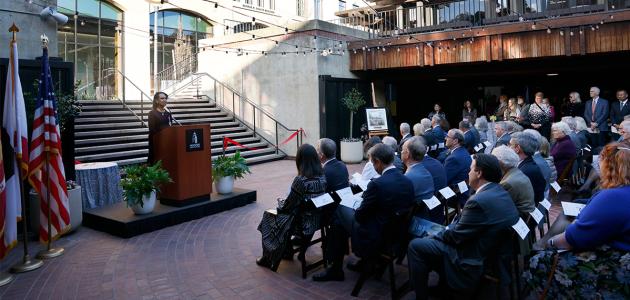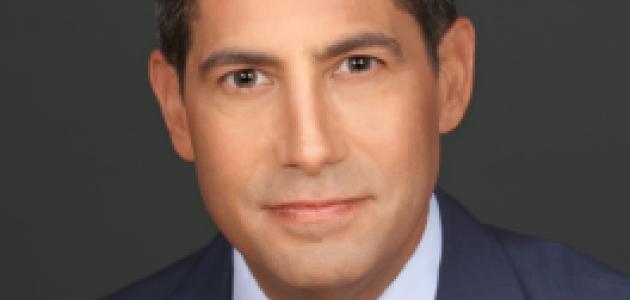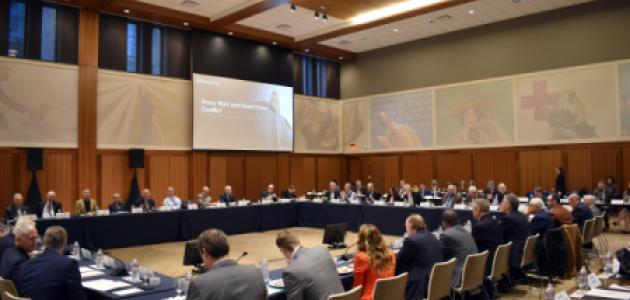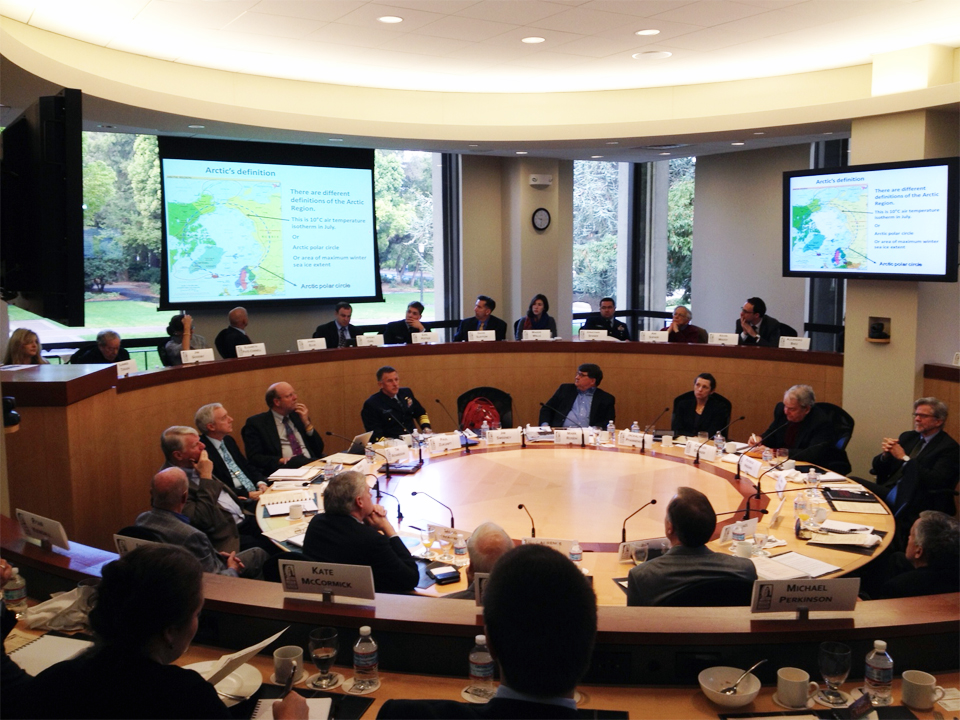
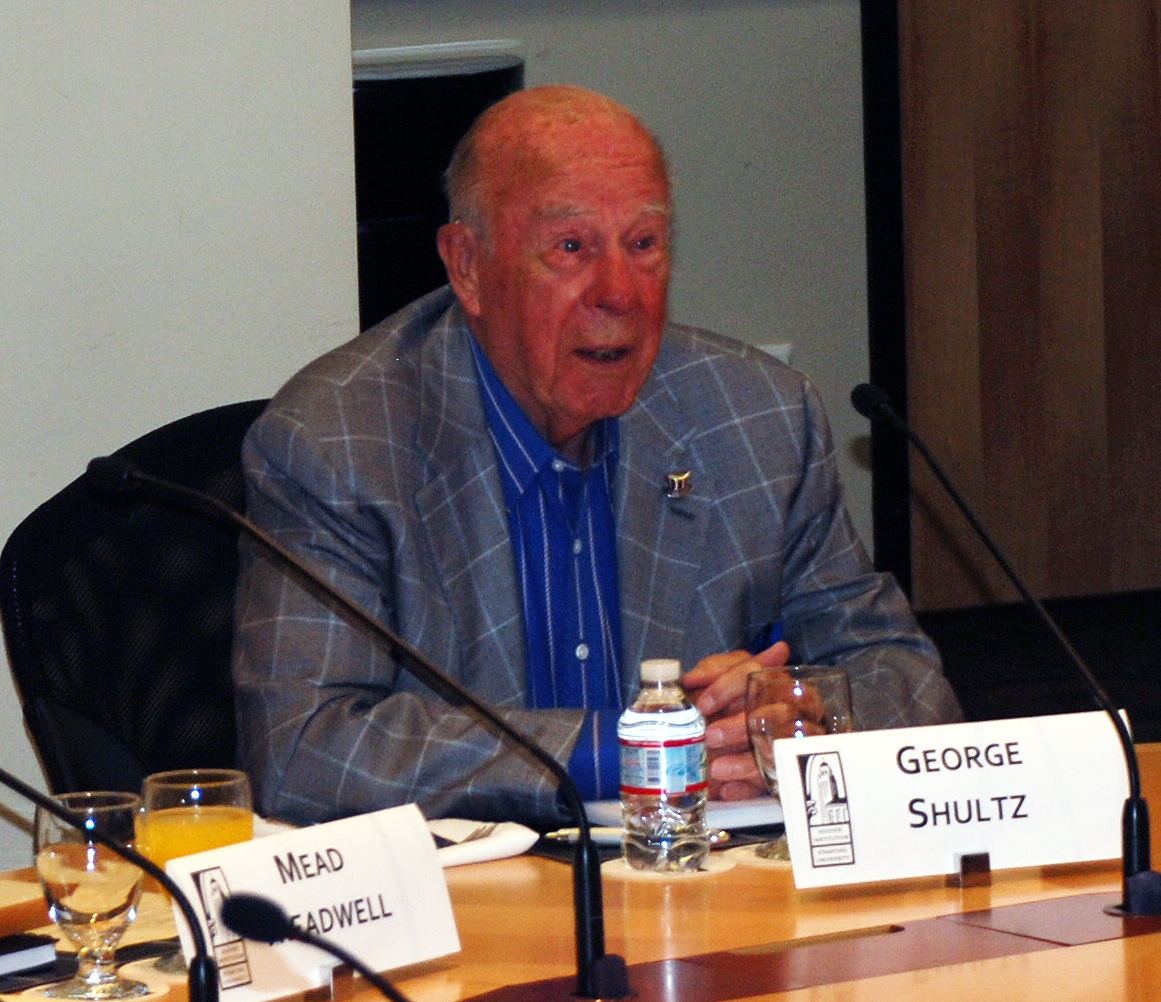
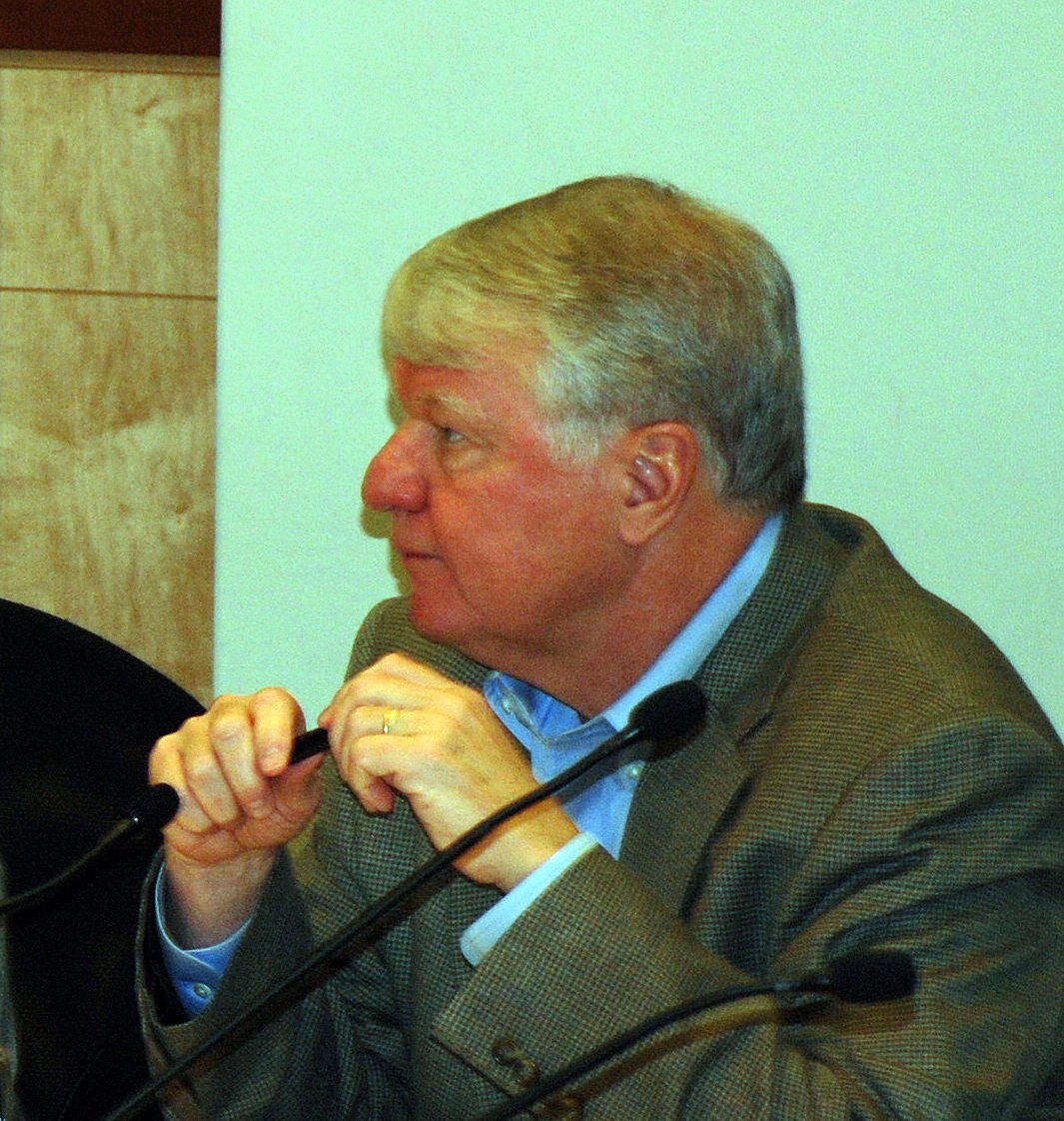

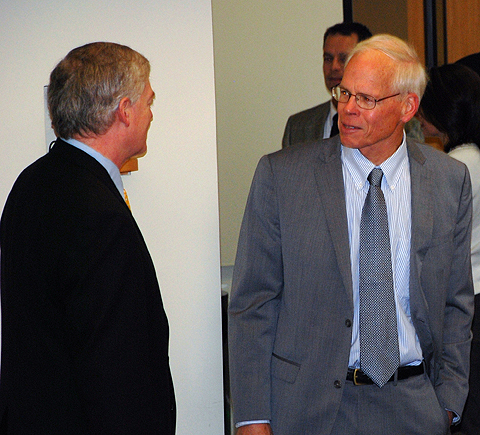
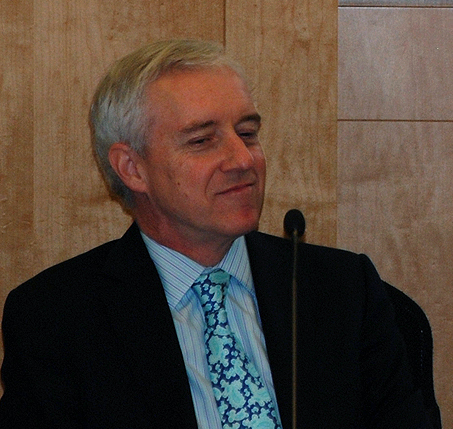
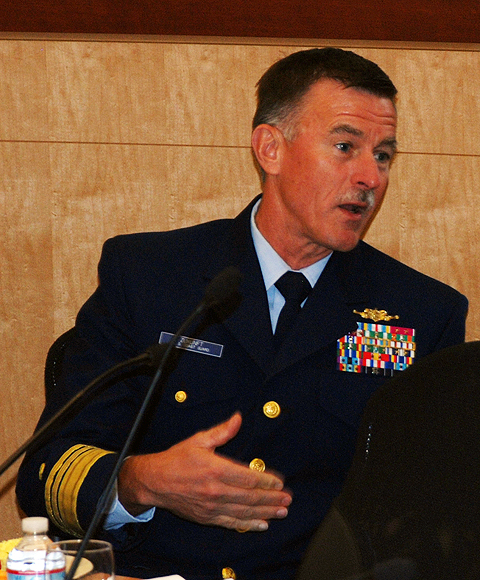
To identify solutions for dealing with the changing Arctic, the Hoover Institution and the Brookings Institution have brought together military, diplomatic, and scientific experts to engage in a series of discussions to address the strategic and security implications of increased activity in the Arctic. The series of discussions will identify opportunities for shaping a safe, secure, and prosperous Arctic.
On Friday, November 16, 2012 the Hoover Institution hosted the first discussion, entitled “The Challenges and Opportunities of Arctic Security,” in the Hoover-Brookings Arctic Project series. Friday’s speakers included the Thomas W. and Susan B. Ford Distinguished Fellow George P. Shultz; Hoover’s Annenberg Distinguished Visiting Fellow and former chief of naval operations Gary Roughead; MIT senior scientist Andrey Proshutinsky; Alaska’s Lieutenant Governor Mead Treadwell; Rear Admiral, USN (ret.) and National Oceanic and Atmospheric Administration deputy under secretary for operations David Titley; Center for Naval Analysis vice president and deputy general counsel Mark Rosen; Director of Strategy and Policy Division, Rear Admiral Mike Smith, USN; and Coast Guard Commander of the Pacific area and defense force west Vice Admiral Paul F. Zukunft.
With global climate change and a diminishing Arctic ice cap, experts are certain that the Arctic will become more accessible in coming years. With new maritime routes, shipping time and costs will be reduced, thus enhancing links between major commercial centers. Additionally, fishing will increase as will access to vast resources. Those factors, combined with economic and geopolitical developments, make the changing Arctic the most significant physical global event since the end of the last Ice Age.
As an unresolved strategic territory, the increased activity suggests the region is likely to become the subject of intense negotiations, possible friction, and confrontations over resources, ocean access, and sovereignty. In light of these evolving changes and challenges, the Hoover-Brookings Arctic Project will address the key considerations facing US national security policy and decision makers as those issues relate to the economy, energy policy, and the environment.







